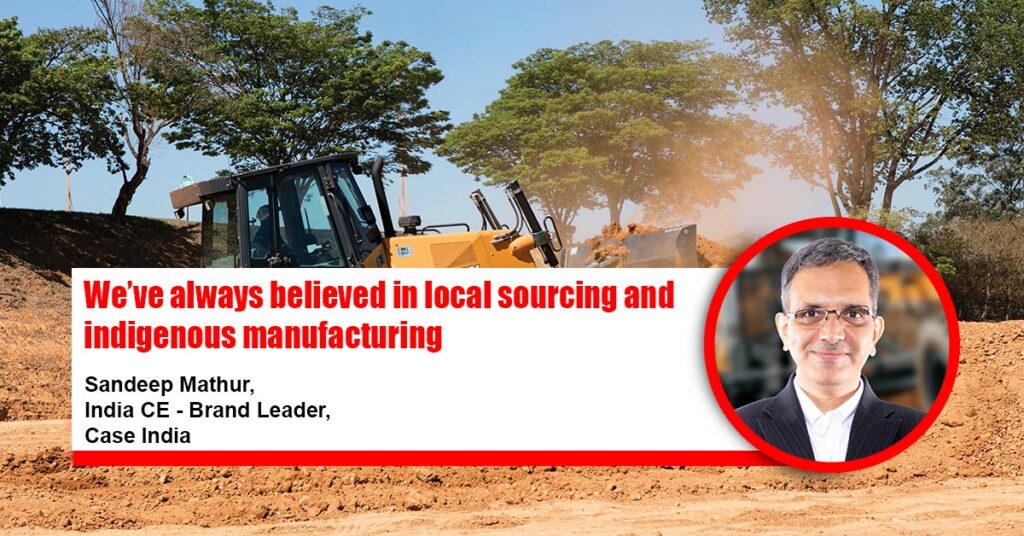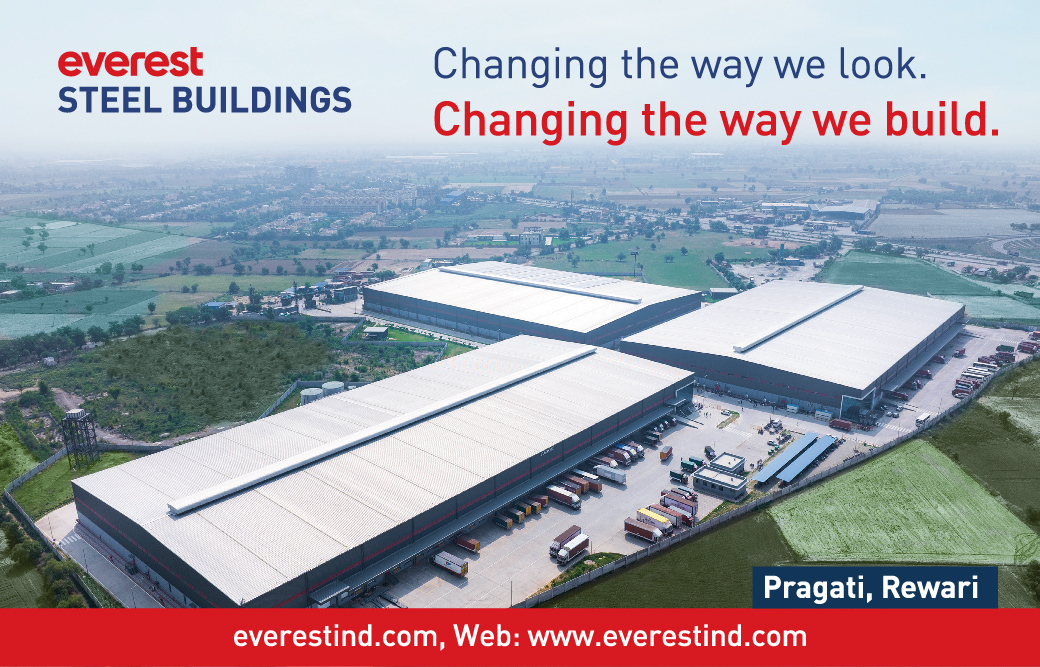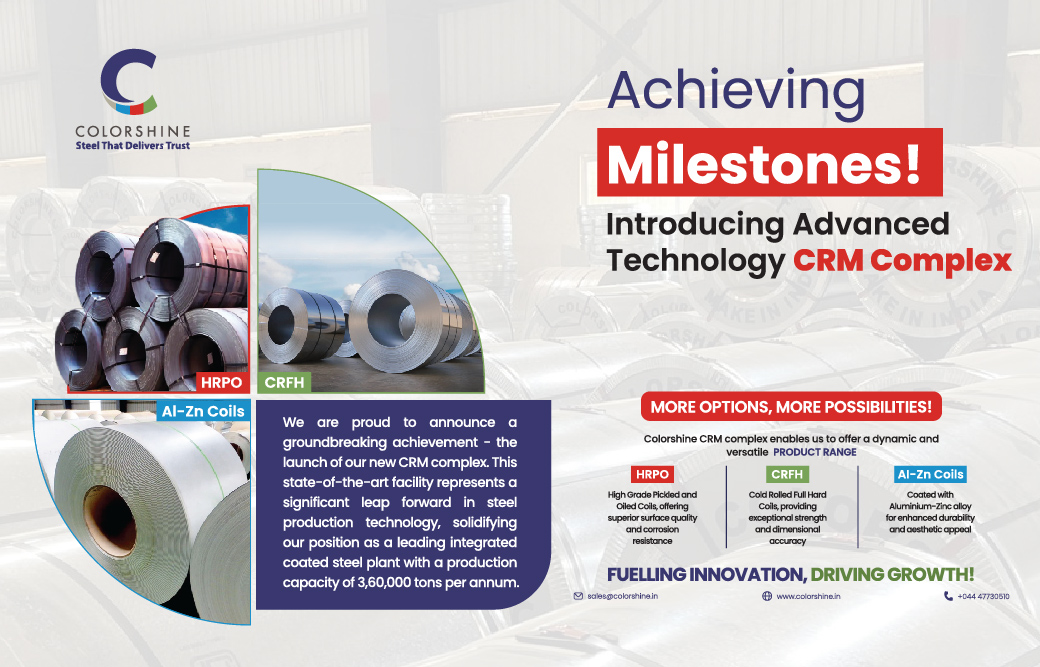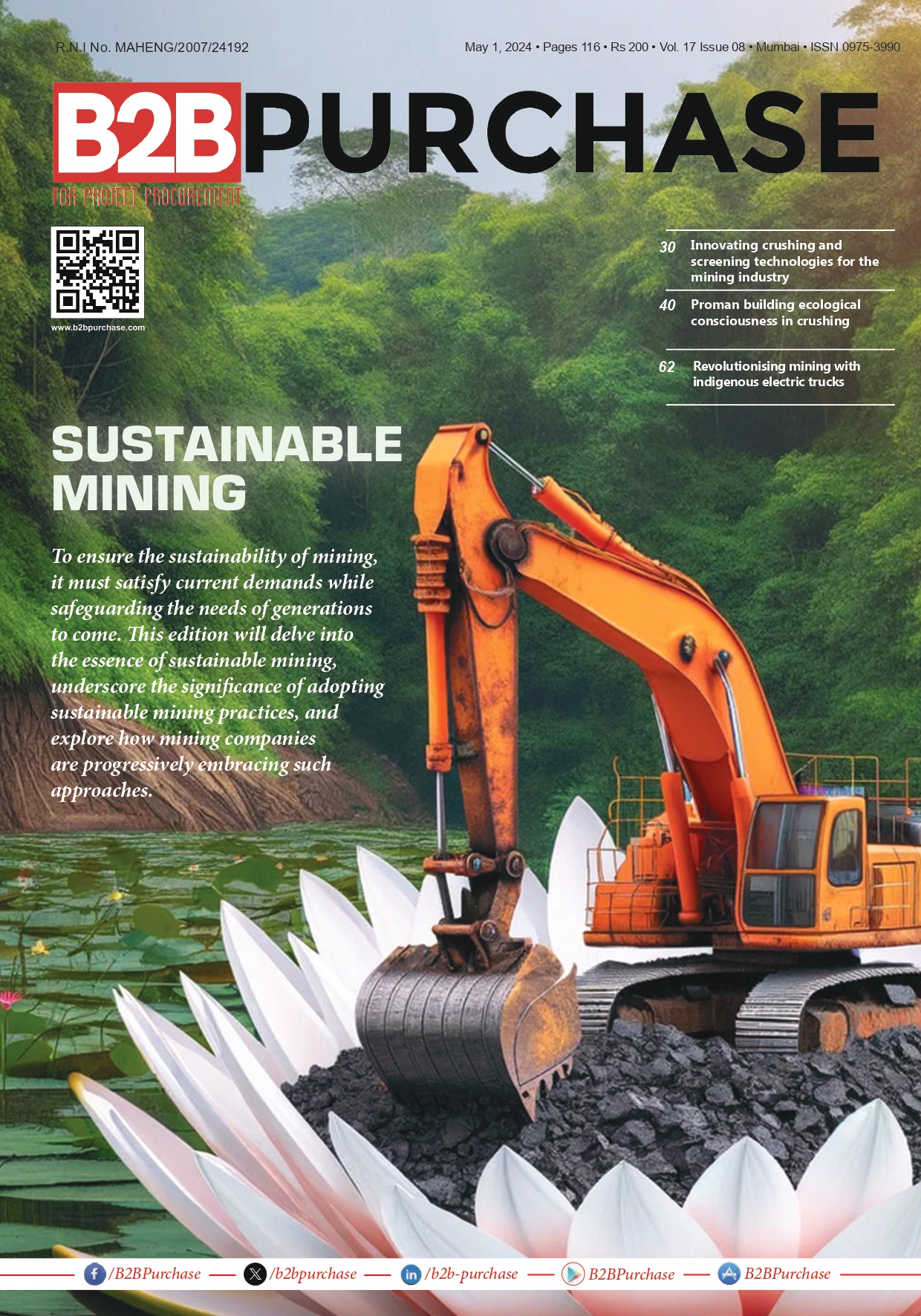A testament to this belief is our manufacturing plant in Pithampur, Indore (Madhya Pradesh) which serves India’s road and infrastructure sector and exports its products to around 30 markets, says Sandeep Mathur, India CE – Brand Leader, Case India.
What kind of construction equipment technologies will be required to support the rapid growth of Indian construction and infrastructure projects?
Technological advancement is an essential part of the CE industry and now even more so. According to a report by Mckinsey, by harnessing industry 4.0 tools like IoT, AI and automation, processes will see 30 to 50 per cent reduction in machine downtime; 1530 per cent improvement in labour productivity; 10 to 30 per cent increase in throughput; and 10 to 20 per cent decrease in the cost of quality.
Case has always been a technology-first brand. Globally, we have introduced a lot of product concepts which are loaded with advanced technological features like Project TETRA and our Autonomous tractor concept which is completely driverless, remotely controlled equipment which can increase a working day to a full 24 hours thereby increasing productivity. Recently, we also launched our Site-Watch platform with an all-new dashboard, more intuitive navigation and new overview sections that highlight critical information without requiring the user to search extensively for the data.
Additionally, our machines also come equipped with a multitude of smart features such as an eagle eye telematics system which helps in monitoring the performance, security and efficiency of the machine in real-time. At Case, we believe in technology that enables and will continue to do so.
How far Indian roads and infrastructure projects will fuel the growth of CE business?
Quarrying, mining, urban infrastructure, roads and highways are some of the sectors that drive the demand for construction equipment. Currently, the government is focussing on invigorating the infrastructure of the country to make India a more investment and business-friendly place. Additionally, the government has been persistently working on stabilizing the infrastructure sector and has announced several projects to boost the infrastructure sector. The Off-Highway Research predicts the market to fall by 27 per cent to 61,225 units in 2020, the availability of the Covid vaccine is expected to push the recovery rate in 2021. Sales may increase 25 per cent to 76,375 units in 2021 and a further 16 per cent to 88,700 units in 2022. The market is forecast to touch 100,300 units in 2023 with a growth of 13 per cent.
The announcements of the projects and economic stimulus related to the construction sector will help in bolstering the demand further. Additionally, easy clearances of projects and fast project completion will help in bringing back this sector on track and increasing equipment demand as well.
As an equipment manufacturer, what is your advice to EPC contractors for efficient procurement of CE?
The government is actively announcing multitudes of projects for the roads and highways sector with stringent deadlines. It is imperative to procure machines which are not only efficient but also robust enough to perform well at any site or type of work. High endurance and low downtime is also an important aspect while procuring machines for CE projects.
At Case, our equipment is made of sturdy and durable components, which ensure that the machines work efficiently in the toughest of terrains and climates. Our machines have optional heavy Duty components buckets, blades and tyres that ensure the longevity of these components that are especially prone to wear. Case Cabins are comfortable and also feature Front Safety Grills, ROPS (Roll Over Protective Structures) & FOPS (Falling Object Protective Structures) to ensure Operator safety.
To ensure the safety and efficiency of a machine in challenging atmospheres we have incorporated systems like Eagle-Eye telematics with GPS tracking which helps in monitoring the machine and relays real-time alarms related to fuel, battery, coolant temperatures etc. Case also offers Case Care & Case Protect Programs which are specifically designed to monitor machines regularly and proactively carry out maintenance when required.
Case India’s equipment ensures a lower cost of ownership and comes with longer service intervals. Another plus is the easy maintenance from the ground level for user comfort and faster service times. We also provide quick solutions through our after-sales service spread across 200 touchpoints to ensure that the customer gets service even in remote locations. At Case, we believe in taking on real challenges and so do our products.
How are you localizing your products and solutions for the Indian market?
The ‘Make in India’ and Atmanirbhar Bharat Abhiyan initiative has recently gained traction again, during the pandemic because the government is exploring India’s potential to become a manufacturing hub. Case India has always believed in the potential of their country. A testament to this belief is our manufacturing plant in Pithampur, Indore (Madhya Pradesh) where Case produces its world-class construction equipment range. From Case’s Pithampur plant, products are being exported to the markets of Africa, South East Asia, Russia, Sri Lanka, Bhutan and Middle East countries. The plant has recently been certified Bronze Level in the World Class Manufacturing (WCM) program. The Pithampur facility serves India’s road and infrastructure sector and exports its products to around 30 markets.
At Case, we’ve always believed in local sourcing and indigenous manufacturing. It’s the way we work and we’ll continue to do so.
Cookie Consent
We use cookies to personalize your experience. By continuing to visit this website you agree to our Terms & Conditions, Privacy Policy and Cookie Policy.


















